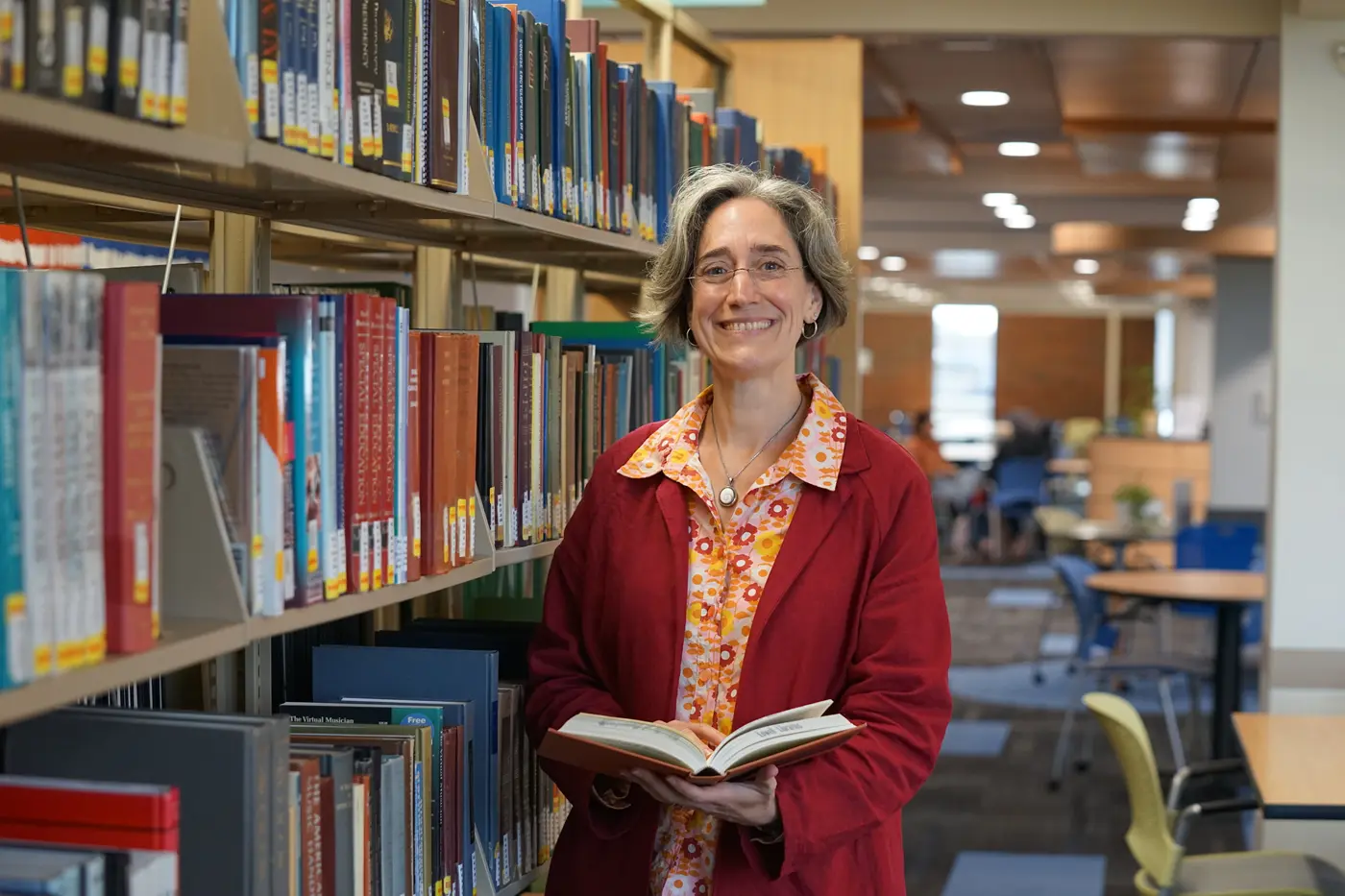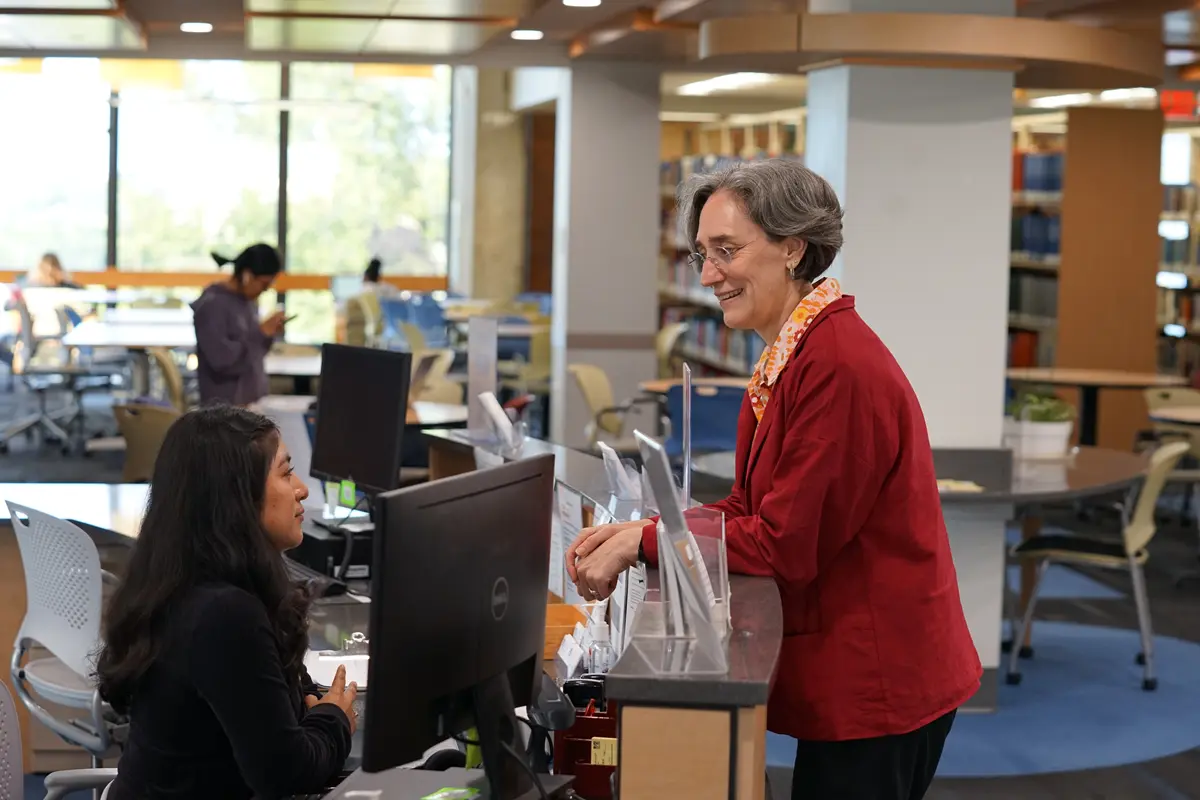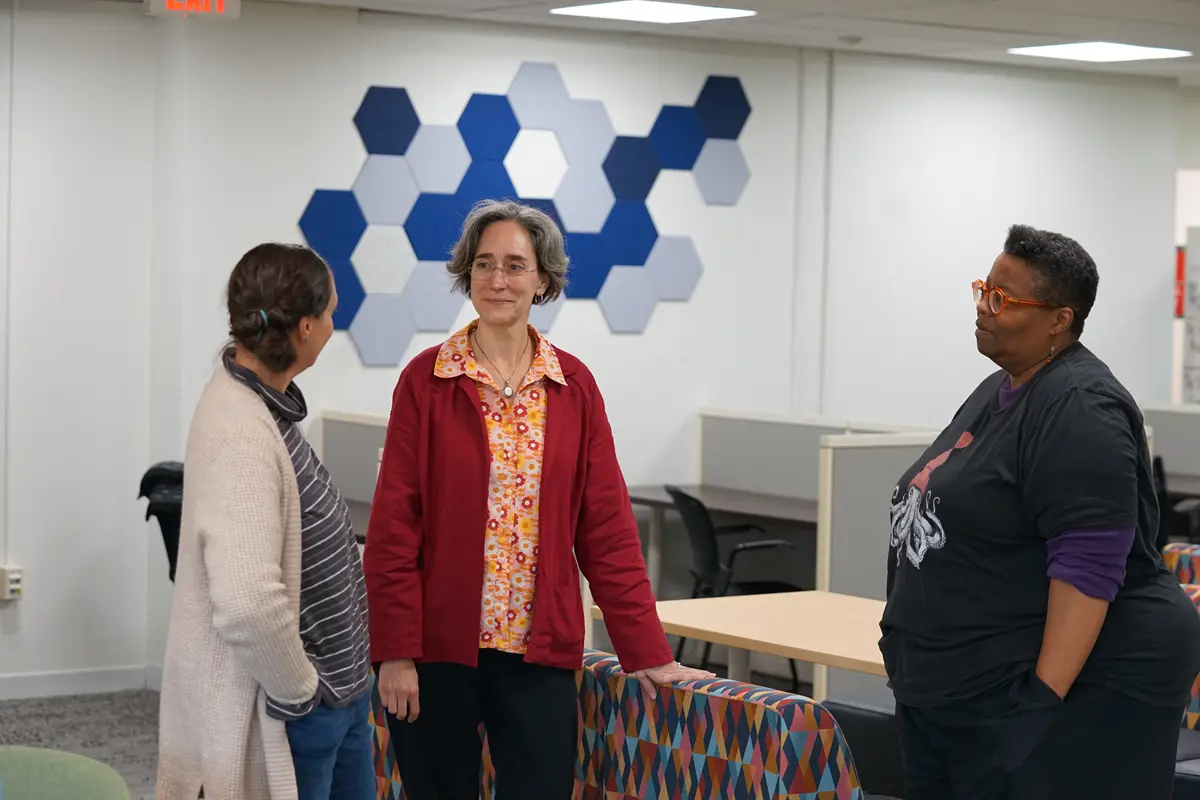 Image by Ed Brennen
Image by Ed Brennen
New Dean of the University Library Galadriel Chilton joins UMass Lowell from the Ivy Plus Libraries Confederation, where she was director of collections initiatives for 13 institutions, including Harvard, MIT, Yale and Columbia.
When Galadriel Chilton was an undergraduate English major at Berea College in Kentucky, she remembers asking a reference librarian for help on a project. Instead of going to the bookstacks, the librarian pulled up a computer search. What appeared on the screen — citations for periodical articles from a database — was completely unfamiliar to Chilton.
“I felt like I should have known what I was looking at, but I didn’t,” recalls Chilton, who was a first-generation college student. “I was embarrassed, so I went back to the books.”
As UMass Lowell’s new dean of the University Library, Chilton says she never wants students to feel the same sense of intimidation.
“Information ecosystems can be complicated,” she says. “I want our library to be a vibrant, open place where all students are welcomed to explore and discover just how much is available to them.”
A native of Charlotte, North Carolina, Chilton earned master’s degrees in library science from Indiana University Bloomington and in education from San Diego State University, specializing in educational technology and instructional design.
 Image by Ed Brennen
Image by Ed Brennen
Dean of the University Library Galadriel Chilton, right, chats with student employee Aida Juarez at the new third-floor circulation desk at O'Leary Library on South Campus.
Chilton sat down to share her vision for the University Library, which employs 15 full-time and 18 part-time staff members and more than 60 students across three locations: O’Leary on South Campus, Lydon on North Campus and the Center for Lowell History downtown.
What attracted you to this opportunity?
The more I learned about UMass Lowell, the more it seemed like an incredibly innovative, community-centered place. I was especially impressed that open access and open educational resources are supported by collaborations between the university’s sustainability and faculty success initiatives and the library. These cross-departmental collaborations not only bolster information access and dissemination, but also reflect an engaged university community. I was also drawn to the vibrant student population from all different backgrounds, including many first-gen students. My previous role was working with colleagues to develop high-level strategy and create governance and inclusive processes that honor human dignity, so coming to UMass Lowell and building upon that work seemed like a logical next step.
What are your top priorities as dean, especially as UML builds its profile as a Research 1 (R1) institution?
First and foremost, I want to listen and learn from the library staff, students and colleagues across the university about what is already incubating in terms of library collection development and management, as well as library programs and services. Our library staff have incredible subject matter expertise, and I want to figure out how to enable them to do their best work. It’s exciting to think about what an R1 university needs from an R1 library. That includes enhancing support for research, teaching and learning by building staff capacity, refreshing collections and expanding online resources to ensure that all the different disciplines have the library resources they need. I’m also interested in helping the research community get foundation-level AI literacy. What does it mean to use artificial intelligence responsibly and ethically? Libraries can play a key role in those conversations.
You’ve been a leader in advancing shared collections and open access. How do you envision building on that work at UMass Lowell?
 Image by Ed Brennen
Image by Ed Brennen
Galadriel Chilton, center, catches up with Associate Director for Research and Learning Amanda Rust, left, and First-Year Experience and Instruction Coordinator Yolanda Hood at O'Leary Library.
How did you decide to become a librarian?
As an undergraduate, I studied English literature because I’ve always been drawn to stories and how narratives help us make sense of the world. And for the same reason, I am interested in how humans use systems and technology to organize our ecosystem and distribute information. But I didn't really make the leap to library and information science until a college friend was talking about her grad program in library science. And it was like a cartoon light bulb went off over my head. I suddenly realized that libraries are about so much more than books; they are community hubs, an ecosystem of information that includes photographs, archives, manuscripts and primary source materials.
What excites you about the future of the UMass Lowell library?
The imagination and enthusiasm of the library staff is phenomenal. Over the summer, the staff led projects to refresh spaces at O’Leary and Lydon, and they also redesigned our website on both the front and back ends. I’m excited to see how the library can weave together the past, like archives and special collections, and the present so that students have a rich understanding of where we've come from and where we're going.
Finally, what do you like to read outside of work, and do you prefer physical books or ebooks?
Recently, I enjoyed “Leading with Dignity: How to Create a Culture That Brings Out the Best in People” by Donna Hicks. It’s full of phenomenal case studies about how we as humans can work together and be respectful. For fiction, “The Invisible Life of Addie LaRue” by V.E. Schwab was an interesting story about what happens when a young woman makes a deal with the devil for her freedom from an arranged marriage, but there's always a catch. And I spend so much time on screens for work that I really like a physical book.
